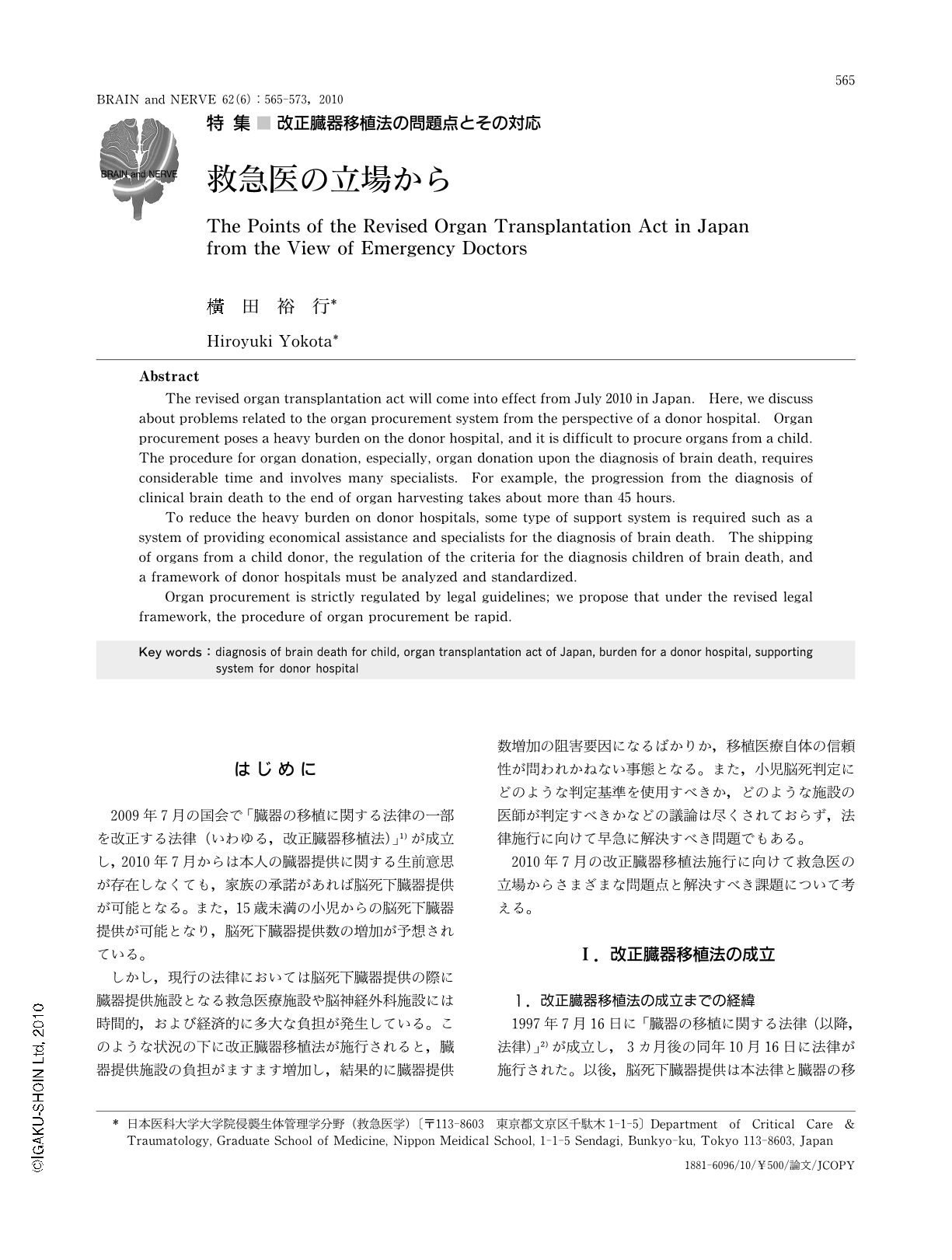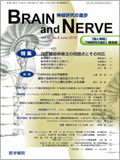Japanese
English
- 有料閲覧
- Abstract 文献概要
- 1ページ目 Look Inside
- 参考文献 Reference
はじめに
2009年7月の国会で「臓器の移植に関する法律の一部を改正する法律(いわゆる,改正臓器移植法)」1)が成立し,2010年7月からは本人の臓器提供に関する生前意思が存在しなくても,家族の承諾があれば脳死下臓器提供が可能となる。また,15歳未満の小児からの脳死下臓器提供が可能となり,脳死下臓器提供数の増加が予想されている。
しかし,現行の法律においては脳死下臓器提供の際に臓器提供施設となる救急医療施設や脳神経外科施設には時間的,および経済的に多大な負担が発生している。このような状況の下に改正臓器移植法が施行されると,臓器提供施設の負担がますます増加し,結果的に臓器提供数増加の阻害要因になるばかりか,移植医療自体の信頼性が問われかねない事態となる。また,小児脳死判定にどのような判定基準を使用すべきか,どのような施設の医師が判定すべきかなどの議論は尽くされておらず,法律施行に向けて早急に解決すべき問題でもある。
2010年7月の改正臓器移植法施行に向けて救急医の立場からさまざまな問題点と解決すべき課題について考える。
Abstract
The revised organ transplantation act will come into effect from July 2010 in Japan. Here,we discuss about problems related to the organ procurement system from the perspective of a donor hospital. Organ procurement poses a heavy burden on the donor hospital,and it is difficult to procure organs from a child. The procedure for organ donation,especially,organ donation upon the diagnosis of brain death,requires considerable time and involves many specialists. For example,the progression from the diagnosis of clinical brain death to the end of organ harvesting takes about more than 45 hours.
To reduce the heavy burden on donor hospitals,some type of support system is required such as a system of providing economical assistance and specialists for the diagnosis of brain death. The shipping of organs from a child donor,the regulation of the criteria for the diagnosis children of brain death,and a framework of donor hospitals must be analyzed and standardized.
Organ procurement is strictly regulated by legal guidelines; we propose that under the revised legal framework,the procedure of organ procurement be rapid.

Copyright © 2010, Igaku-Shoin Ltd. All rights reserved.


